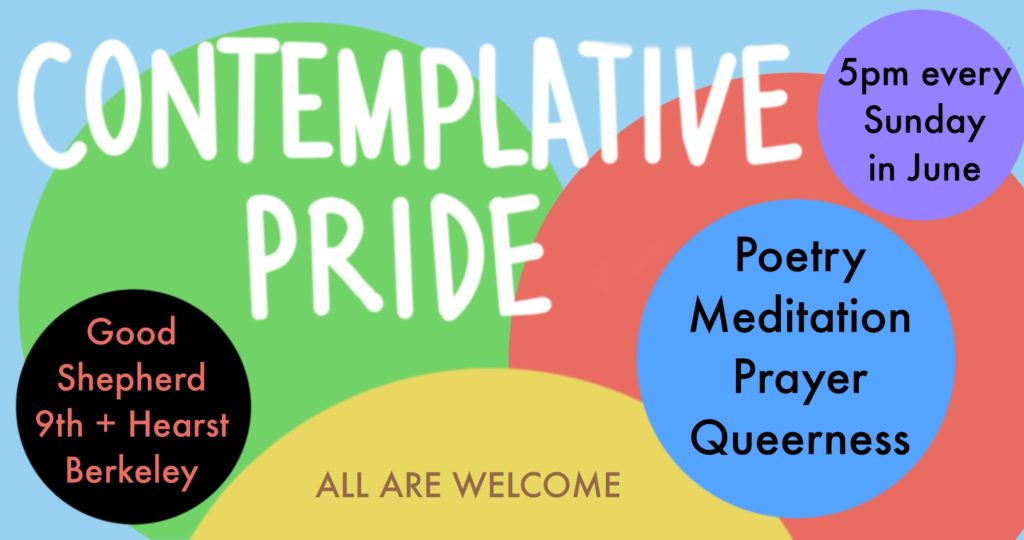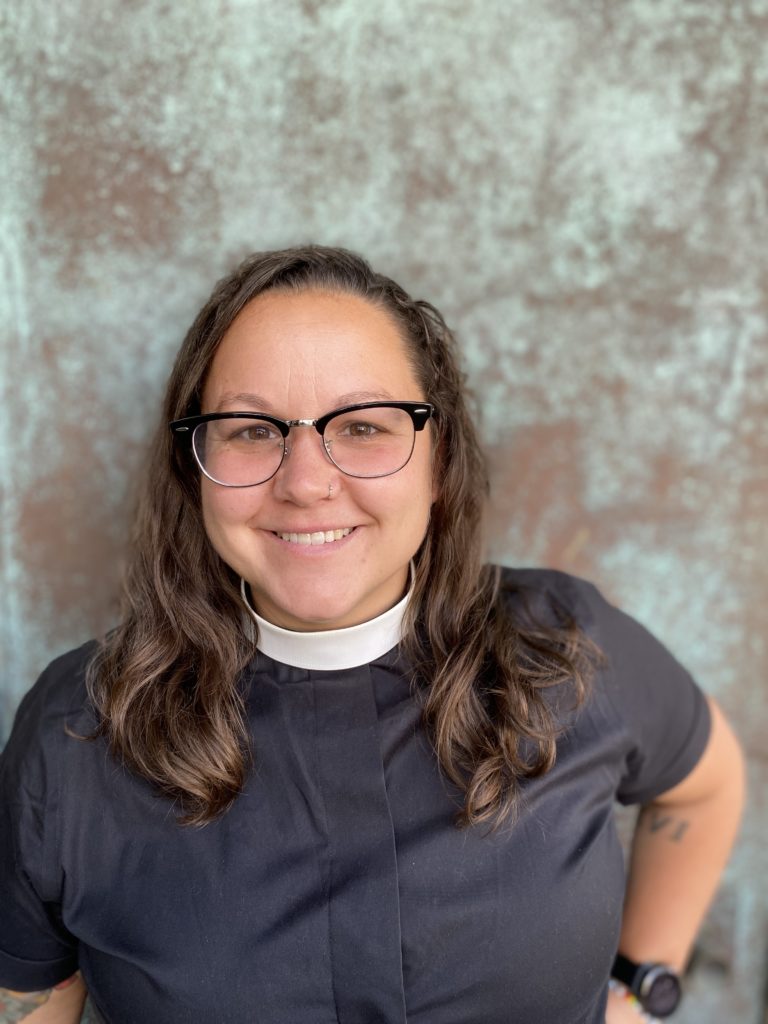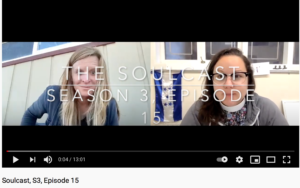From the Associate Rector
Worship Updates
I read an article in February or March of this year predicting what the summer might look like in terms of Covid, and how much social distancing and safety measures would still be required. I don’t remember all the finer points of the article, but I do remember one part very clearly. It said something like: “People should expect to have a pretty normal Fourth of July.” I remember reading that line and thinking, no way. There is no way things are going to change that quickly. I couldn’t fathom being in a large crowd, being around strangers without a mask (even outdoors,) and I certainly couldn’t imagine getting to see the other half of all of your faces in person!
Now that it’s mid-June, that reality is starting to seem a little more possible. In fact, here in Berkeley, we’ve officially dropped into the yellow tier for the first time since the tier system began, with fewer than 2 cases of Covid per 100,000 people. It’s incredible to think about. It’s almost overwhelming.
As we enter into this new reality together, big changes to our life as a community of faith are on their way. For starters, we are able to gather for more than just worship! We have been having in-person meetings and adult education classes, the staff has returned to the office a few days a week, and indoor worship resumed on May 23rd. Last Sunday we had our parish picnic in Tilden, complete with delicious food and lots of fun and games.
Over the summer, there will be lots of opportunities for you to connect to your church family (live and in-person!) in ways other than Sunday morning worship. The camping trip to Big Sur is coming up in July, we’re planning some movie nights, and preparing for the return of All Souls night at the A’s game!
This also means some changes are coming up in worship as well. On June 3rd, the Diocese of California released some updated protocols for outdoor and indoor worship. That means a few changes for us here at All Souls: first, at the 9:00am outdoor worship, masks are no longer required as long as we maintain a 6 foot distance from people outside of their household. Of course, if you are more comfortable with a mask on, you are certainly still welcome to wear yours! We’re also permitted to have coffee hour outdoors, which we will try for the first time this week after the 9:00am service.
Second, at the 11:15 indoor worship, vaccinated individuals who are worship leaders, including choir members, clergy, readers, etc. are no longer required to wear masks. For us, this means that worship leaders will remove their masks for their speaking or singing parts. The congregation is still required to wear masks, and there is still no congregational singing.
While these changes are exciting, I expect more changes next week after the state of California adopts the CDC guidelines on the fifteenth. It may take the Diocese of California a couple of weeks to catch up, but I think it is safe to say that more changes are on their way.
While these changes (and the ones to come) may bring some welcome relief, as well as a bit of trepidation, I am confident that we will be able to work together to create opportunities for everyone to engage in the life of the community in meaningful and safe ways.
In peace,
Maggie+
Reflections on Pride
 Belonging, Authenticity, and Church
Belonging, Authenticity, and Church
“Why is belonging to a church that celebrates my queer identity important to me?” The word I fixate on in this question is belonging. Nearly all of us want to feel a sense of belonging, somewhere. Our rite of baptism has at its core a message of belonging: you are part of God’s beloved community, part of the circle of love that draws everyone in and casts no one out.
If we are to truly feel that we belong, we must be able to show our authentic selves, whatever we understand that to mean for us. When we can’t be authentic, we can never fully trust the embrace of a community. We know that what we are putting forth, what others are saying that they accept, is a counterfeit version of ourselves. We wonder if people would still accept us if they knew the real us.
When our authentic sense of self and the social and cultural expectations placed on us match up neatly, feeling a sense of belonging may come fairly easily. When they don’t, it’s much harder. For LGBTQ+ communities, the cost of being made to feel that we don’t belong is clear. Study after study document higher rates of depression, anxiety, substance abuse, and suicide attempts among LGBTQ+ people worldwide compared to their heterosexual counterparts. Both the pain of rejection by our communities of origin and the strain of coping with hostile external forces factor into this distress.
But feeling like we belong isn’t as simple as finding a gay or queer enclave to huddle into. All communities have norms, expectations, and varying levels of tolerance for difference. When I came out in my late twenties, I left the Church so I wouldn’t have to listen to endless debates about my worth as a human being. As I spent more time with other gay people, though, I learned that I had an easier time of things if I didn’t talk about my faith. In retrospect, I exited one closet and entered another. Six years ago, during a particularly stressful moment in my life, this bifurcation of myself became intolerable. I needed a place where I could be all of myself, all the time. That’s when I started coming to All Souls.
On my first day of seventh grade, I discovered that a large group of older kids had decided to make me a target of bullying. Starting that day and continuing for six years, I endured relentless homophobic bullying, intimidation, and abuse. I often lived in a state of terror. That was the obvious wound. But the wound that only became apparent later in life is that I feel a permanent rift with my close-knit, rural, ethnically Norwegian home town. That place is the only true cultural home I have ever known, but I no longer feel safe there. At the same time, while I have found safety in other places, I almost always feel, at least a little, like a fish out of water.
Feeling a sense of total belonging eludes me. I exist in exile, wondering if the feeling of home will forever be just outside my grasp, and knowing that a community that appears to accept you one day can turn on you the next. Thankfully, throughout my journey, God has been a steadfast anchor, the force that holds me together when all other connections fail. You are God’s beloved; you belong. That anchor becomes my starting point for venturing back into relationship with others, risking vulnerability, learning to trust again, and working to accept the love offered by a community that affirms the right of all of us to live our authentic lives. All Souls is a place that lets me do this work.
-Bob Holum
From the Associate for Music
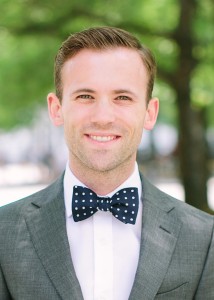
Beauty of Holiness
There is a rich historical relationship between music and notions of beauty. For example, rationales for the use of music in church have often cited a verse from the psalms: “O worship the Lord in the beauty of holiness.” Of course, appeals to scripture inevitably mean vastly different things in different contexts, mediated by the languages, cultural assumptions, social structures, and political dynamics of particular places and times. Who created this English translation, and under what circumstances? What might it obscure about the original Hebrew wording, or about ancient understandings of what we would now call aesthetics? What subsequent agendas have ideals of “beauty” been made to serve, and what can we learn from all this?
This memorable phrasing—“beauty of holiness”—originated in a 1535 translation of the Bible by Miles Coverdale, whose translation of the psalms became the basis for the prose psalter used in the services of the Church of England (it remains the favored translation in many Anglican communities even to this day). It became a weapon in debates over worship practice in the post-Reformation Church, particularly during the reign of Charles I (1625-1649): in the 1630s, a group of church officials and other members of the clergy, under the authority of William Laud, Archbishop of Canterbury, sought with unprecedented zeal to enforce uniformity in worship practice across the Church of England (uniformity was already required by law, but had not been the target of so serious a crackdown under the regimes of Elizabeth I or James I). The Laudian platform included a range of changes to then-current practice, such as replacing wooden communion tables with east-facing stone altars, erecting sumptuously decorated baptismal fonts, and emphasizing certain liturgical gestures that had been criticized as “popish” (a derisive term for Catholic) by other English protestants. Each of these elements was subject to intense polemical conflict, carrying layers of theological and therefore necessarily political meaning. History was another intersecting category, especially since historical narrative had been a powerful weapon of European religious conflict since the previous century. Laudian writers took great pains to couch their agenda within the authority of history, to portray it as consonant with the canons of the Church of England, the wisdom of its previous luminaries, and, of course, biblical commands. Indeed, they countered charges of innovation, a label few factions wanted, by arguing that the changes they proposed were more faithful to the Elizabethan Church (whose mantle everyone wanted to claim) than current English practice.
The scriptural injunction to “Worship the Lord in the beauty of holiness” became one of the refrains of Laudian rhetoric. They believed that because churches were houses of God, anyone should be able to, as one writer put it, “behold his glory and majesty in the stateliness and beauty of the building, in the richness of the sacred vessels and ornaments, the numerous multitudes of his servants, the various fruits of the blessed sacraments, the dignity, holiness and sacred pomp of his ministers” (male pronouns for God were of course the default). It is important to acknowledge that, even if we attempted to separate out subjective aesthetic judgment, this understanding of Psalm 96:9 did a certain kind of justice to the original Hebrew word behind Coverdale’s “beauty”: hadarah. This word is glossed in one standard modern lexicon as “holy adornment, always in connection with public worship.” Indeed, “beauty” was itself a comparatively descriptive term in seventeenth-century England, only taking on more heavily aestheticized meanings in the nineteenth century under the influence of German Romanticism. For the Laudians, ornament was something of end in itself; God’s glory and majesty was reflected in the accumulation of decorative stuff, and the relationship didn’t necessarily hinge on whether or not particular material enrichments provoked the kinds of positive aesthetic experiences and judgments that have become so central to the idea of “beauty” as it operates in modern contexts.
Beauty is not just subjective but contextual, its function and even its definition looking different in different times and places. This reality is especially helpful to keep in mind when encountering objects or practices that don’t fit within our existing conceptions of beauty. My challenge is to go find something that you know is considered holy by some person or community, but that you find puzzling, discomforting, distasteful, grating, or even, yes, ugly. Learn about its meaning in that context; use your senses to engage with it. I bet you’ll find something you didn’t expect—maybe something beautiful.
Jamie Apgar, Associate for Music
From the Recently Baptized
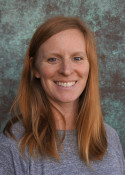 Dear friends,
Dear friends,
This essay is part of a three-part series from three of the folks who were recently baptized at All Souls––two at the Easter Vigil and one most recently on Pentecost. I asked them to answer three questions:
1) What made you want to be baptized at this time? (and maybe how you found All Souls?)
2) What were you thinking as Phil was dunking you? 🙂
3) Who was there for you––either as a Sponsor or just in the audience with you that day and why them?
I find these three especially brave as they have decided to join a faith and a church body in the middle of a global pandemic, and in some cases having never met anyone in person from the church! I hope you find them as inspiring as I have.
________
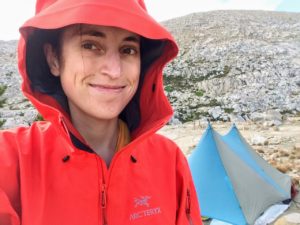 My journey towards baptism has been a winding one since my teenage years. I’ve always been spiritually questioning, but up until recently had never found my spiritual home. I think when I was younger I viewed things in more absolute terms, and as I’ve grown older I’ve become more comfortable with not knowing all the answers. While I do think there are core tenets (like those stated in the Nicene Creed) I should believe in to be baptized as a Christian, there are other areas I’m less certain I have – or will ever have – the answers to. For example, if Christ returns to raise us from the dead at the end of days, where are we in the meantime? Are we in heaven? Or just in between, waiting? These are the types of questions I used to think I needed to have answers to before committing to a path in my faith.
My journey towards baptism has been a winding one since my teenage years. I’ve always been spiritually questioning, but up until recently had never found my spiritual home. I think when I was younger I viewed things in more absolute terms, and as I’ve grown older I’ve become more comfortable with not knowing all the answers. While I do think there are core tenets (like those stated in the Nicene Creed) I should believe in to be baptized as a Christian, there are other areas I’m less certain I have – or will ever have – the answers to. For example, if Christ returns to raise us from the dead at the end of days, where are we in the meantime? Are we in heaven? Or just in between, waiting? These are the types of questions I used to think I needed to have answers to before committing to a path in my faith.
Now, I’ve become more comfortable with faith being about believing that there are answers to these questions, even if I’m not always one who holds them. When Jesus asked Simon and Peter to follow him, he didn’t give them a pop quiz. He said to them, Come, follow me. and they did.
As I sought my own path in discipleship, I was drawn to the Episcopal Church because I felt it struck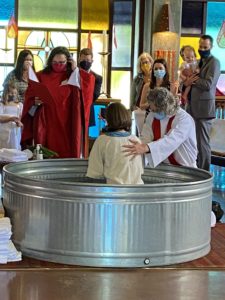 the right balance between maintaining meaningful rituals and traditions from the early Church and engaging with the world and being willing to evolve. After attending All Souls a number of times in person before the pandemic, I decided I was ready to take the plunge, so to speak.
the right balance between maintaining meaningful rituals and traditions from the early Church and engaging with the world and being willing to evolve. After attending All Souls a number of times in person before the pandemic, I decided I was ready to take the plunge, so to speak.
I was honored on the day of my baptism to have my wife, Caitlin Brown, her parents, Peter Brown and Jill Fryar Brown, and my dear friend, Nell Cloutier, there as witnesses. As Rev. Phil got ready to dunk me in the water, all I could think was, “Wow, here we go!” I’m excited to have taken this important step, and know there is so much more for me to do and to contribute to the community as a part of my faith. I’m grateful to be a part of the All Souls community and am looking forward to all that lies ahead.
-Shelby Carpenter (baptized on Pentecost)
Weekly Worship
Sunday Mornings: Join us at 9am in the courtyard, in-person (masked and holding a 4’ distance between you and anyone outside of your pod or family). Attendance is limited for outdoor services, so please sign-up here! Please remember to bring your own chair and chalice!
Or (and!) join us in person (masked and distanced of course!) or online for the 11:15 service, which can be accessed through our website or by tuning into our All Souls Episcopal Parish Facebook page. Click here to watch on Sunday morning. If you’d like to attend in person, please register at this link, and don’t forget to bring your own chalice!
Wednesday Mornings: 9:00am PDT
Join us in person in the church, or online!
Join the Zoom call here: https://us02web.zoom.us/j/86087951049?pwd=THNxbjlqMm5zdjc5RGNLWkFrZk16QT09
Meeting ID: 860 8795 1049 Password: 520218
Thursday Night Compline (Night Time Prayers): 8:30pm PDT
Join Zoom Meeting: https://us02web.zoom.us/j/84737698405?pwd=dlh2OXZmblBYTU5hTEw5TGJXUVZNZz09
Meeting ID: 847 3769 8405
Passcode: AllSouls
Adult Formation
7:30am Reading Between the Lines Bible Study Contact Kate Murphy to join that Zoom call.
10:10am Reading Between the Lines Bible Study Contact Daniel Prechtel to join that Zoom call.
If you’d like to attend this class in person, it will meet downstairs in the chapel at 10:10am.
Summer Book Group for Adults Please join us for summer book group at All Souls! Starting in June, we will be discussing The Sum of Us by Heather McGhee. You may attend in person or by Zoom. The reading and discussion session is: June 13 (Intro through Chapter 3, p. 65), June 20 (Chapter 4 through Chapter 6, p. 165), June 27 (Chapter 7 through Chapter 8, p. 219), and July 11 (Chapter 9 through 10, p. 288).
Missed the previous week’s class?? Not to worry, we’ve got you covered. We’ll be recording all of the Adult Formation offerings and loading them to the Adult Formation page of our website. Click here to get there and access the class recordings.
New Racial & Social Justice Library
During the last year, All Souls has had a deep desire to share the truth about the church and our role in the history of racism. By sharing our experiences, and participating in the course called Sacred Ground, many have found life-changing ways to practice the way of Jesus and to repair the breach in our country.
There are some incredible, challenging books on racism and social justice being published right now, and we have set up a way to share these treasures among our congregation. In the narthex as you enter the sanctuary, you will find several shelves of new and used books. Please take one, keep it, pass it on, or return it. Add one or as many of your own if you see fit.
Children, Family & Youth News
Children’s Ministry
Children’s Book Clubs begin this Sunday, June 13th! Meet at 10:10 in the courtyard. Older kids will be reading Other Words for Home by Jasmine Warga, week by week, and younger kids will read short stories. If you’d like to receive updates about Children’s Formation, but do not subscribe to the Family Bulletin, please email Maggie Foote (maggie@allsoulsparish.org) for more information.
Youth Ministry
Youth group has concluded their regular meetings for this year, but stay tuned for information about special summer events! If you have a young person in your household in grades 6-12, and do not receive updates about Youth Group events, please email Maggie at maggie@allsoulsparish.org to be added to the list!
Other News & Notes
Soulcast: Our Weekly Video Announcements
Check out Season 3: Episode 15 of the Soulcast!
People needed to “Make Church Happen”
Consider joining the Usher and or Greeters teams!
During the week the musicians practice and the sacristans ensure the altar linens and other things necessary for the service are in order for the service. They arrive early on Sunday and set up for the service. These preparations enhance our experience of Church. When we arrive on Sunday morning there are people who greet us, hand us a bulletin, and make note of newcomers then distribute wine and juice during the service. They answer our questions, help us with a chair and place to sit. They welcome us and want us to feel at home.
Does this sounds like something you’d like to do? If so, contact Renae Breitenstein.
Lectoring & Intercession on Sunday Mornings
If you are interested in becoming a Lector or Intercessor (the folks who read the bible passages and lead the prayers during the Sunday morning services), come to our Lector & Intercessor training next Sunday, June 13th between the 9 & 11:15 services. Dr. Scott MacDougall will lead a short training for anyone interested. For more information, see Emily, emily@allsoulsparish.org.
Sunday Morning Tech Help
If you are technically inclined and looking for a way to help out on Sundays, we can use the help! Mostly we’re looking for a sound tech or two, and perhaps another person or two to learn how to operate the camera. All roles come with training and great company :). See Emily for more info, emily@allsoulsparish.org.
Stephen Ministry: Christ Caring for People through People
That’s the motto of Stephen Ministry. The Stephen Minister’s role is to bring God’s love into the lives of people who are going through a difficult time or experiencing a crisis. What do Stephen Ministers do? They listen, care, support, encourage, and pray with and for a person who is hurting. And in the midst of this confidential, one-to-one, caring relationship, God’s healing love comes pouring through.
If someone you know is facing a crisis—large or small—and could benefit from the caring presence of a Stephen Minister, talk to Rev. Maggie Foote (maggie@allsoulsparish.org) or Stephen Ministry Leader Madeline Feely (madelinefeeley@gmail.com). Our Stephen Ministers are ready to care for you!
Racial Justice Event at the Ella Baker Center
Realizing Racial Justice event put on by the Ella Baker Center with special guest Ibram X. Kendi on June 16th at 5p (livestreamed) to talk about what’s next. Register here for the event!
Ongoing Canned Food Drive
The ASP Food Drive continues to pick up and deliver food for the Berkeley Food Pantry on a weekly basis. Food contributors and drivers participate every other week. Please email Cathy: ogoshca@yahoo.com for more information.
Meal Train
If you are able to help provide some meals for parishioners in need, please contact Cathy Goshorn to help out! We are in great need at this time to help care for each other––please consider helping other All Soulsians in need by providing meals or gift cards for meals. You can reach Cathy at ogoshca@yahoo.com.
Contemplative Pride Service at Good Shepherd, Berkeley
